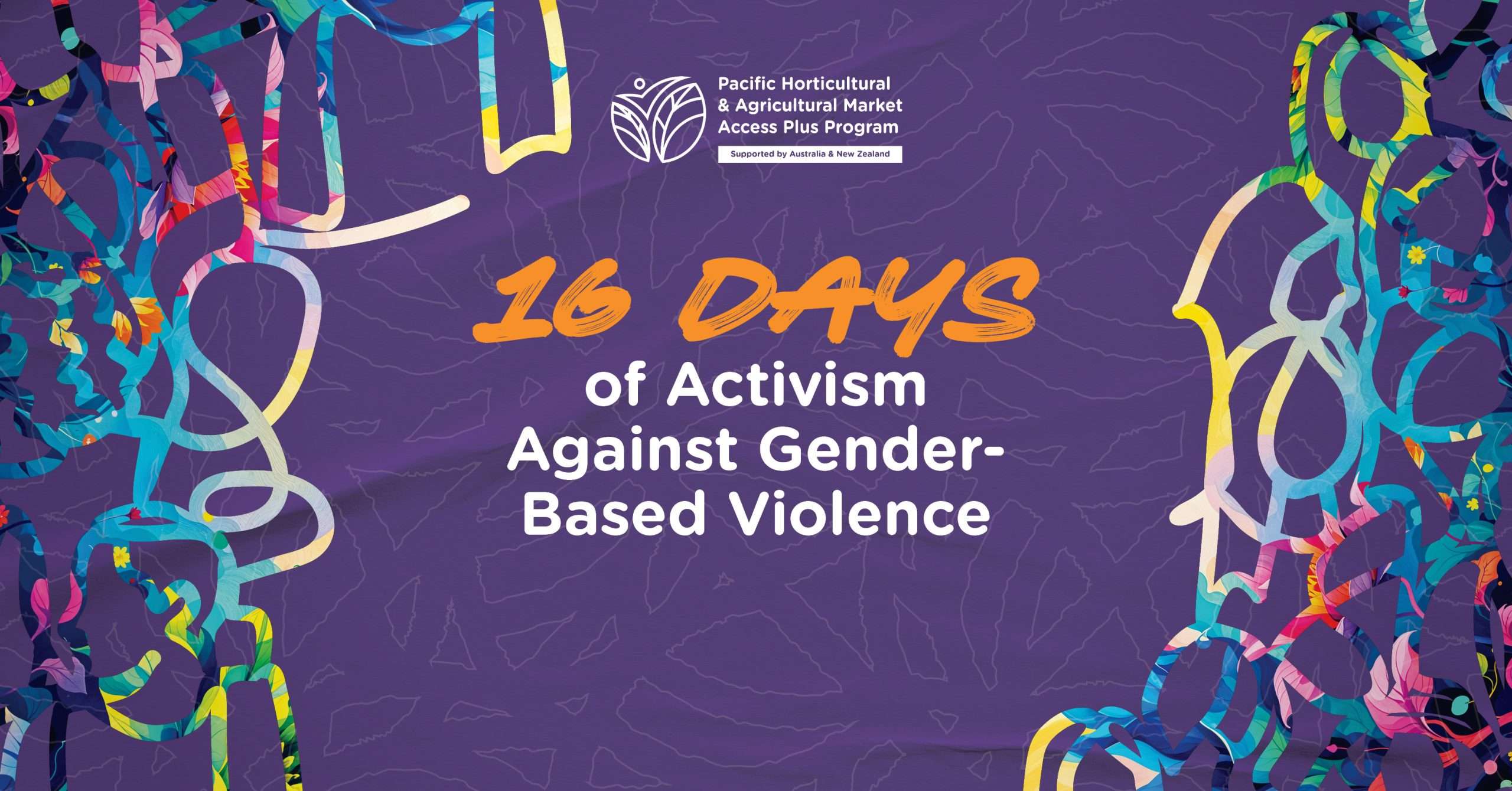
As the 16 Days of Activism Against Gender-Based Violence came to a close, let us continue reflecting on our commitment to ending all forms of violence against women and girls. This period serves as a reminder for all of us to take year-round action and work towards creating a safer, more equitable world for everyone.
Even though viral campaigns like #MeToo have brought global attention to violence against women, gender-based violence continues to be a pervasive problem in homes, communities, and workplaces across the world.
The Pacific region is no exception with domestic violence rates in some countries well above global averages. These high rates of violence are often compounded by a lack of legal protections for victim-survivors and social and cultural beliefs that normalise gender-based violence.
Gender-based violence not only affects the victim-survivors and their families and communities, but it also goes way beyond this to affecting whole economies and societies. For example, violence against women impacts how agricultural market systems operate. When gender-based violence occurs in agribusinesses, where women play a prominent role, it has a direct impact on worker health and safety, productivity, absenteeism, and even labour force participation. It is estimated that gender-based violence occurring in the agriculture sector costs some countries almost 2% of their annual GDP (Chmielewski and Alnouri, 2018).
For many women, the threats of gender-based violence are everywhere – they can be at home, in the community, or at work. In agricultural market systems, gender-based violence can happen to women working anywhere in the system – on the farm, at the processing level, or in exporting.
As women are empowered to play increasingly important roles in these systems, the risk of gender-based violence can also increase. These roles require women to resist traditional gender-social norms leading to shifts in the power balance, jealousy, and spite—and subject women to violence and harassment.
The Pacific Horticultural and Agricultural Market Access Plus (PHAMA Plus) Program is supported by the Governments of Australia and New Zealand. It has supported agricultural market systems development in 10 Pacific Island countries (Cook Islands, Fiji, Kiribati, Niue, Papua New Guinea (until June 2024) Samoa, Solomon Islands, Tonga, Tuvalu ,and Vanuatu). The program supports public and private sector partners to build effective and efficient agricultural market systems and supports Pacific exporters to access new markets and grow their exports. PHAMA Plus also aims to contribute to inclusive economic growth and improved livelihoods for Pacific people.
PHAMA Plus has supported our partners across the region to adopt more inclusive business practices that help create positive workplaces across the agricultural sector. We see a positive workplace as one that values and respects Pacific workers in all their diversity, where there are equal opportunities for women and men including those with disabilities. Positive workplaces take practical measures to eliminate and address all forms of violence and harassment and create supportive environments for worker-survivors of domestic and family violence. A positive workplace is inclusive, accessible, safe, and supportive for all workers.
While women have traditionally played important roles in agriculture in the Pacific, these roles have been less visible and lower paid. There are signs however that this is starting to change, albeit slowly. An increased focus on high-quality products, the need to meet increasingly stringent food safety, labelling, and packaging requirements, and growing recognition of the economic value of onshore processing of high-value niche produce are providing more opportunities for women to play important roles in agri-processing and exports. In Fiji, for example, it is estimated that around 90% of workers in agri-processing facilities across the country are women. In Vanuatu, this number is around 60%.
Pacific exporters are also experiencing market-driven demand for improved performance around inclusion and the prevention of violence. For example, European importers of high-value, niche Pacific products are now required to report against the European Union’s new Due Diligence Directive. Complying with the directive not only requires businesses to demonstrate their performance against various measures related to gender equality and ensuring safe workplaces free from violence and harassment, but also requires them to be able to demonstrate similar standards throughout their value chain.
PHAMA Plus’s work supports the creation of positive, inclusive, and safe workplaces for women and men in the agricultural sector. PHAMA Plus is working with both private and public partners to develop innovative gender and socially inclusive workplace practices and policies. For example, in Fiji we have supported exporters such as Lami Kava and Kaiming Agro Processing in Fiji to develop Workplace Domestic Violence Policies (WDVP) and provided gender sensitisation training to other partners including Marama Niu and Road King Farms. In Vanuatu we are working with the Vanuatu Primary Producers Association to develop a Positive Workplace Strategy that seeks to eliminate all forms of gender-based violence and harassment, safeguard girls and boys in the community, and provide for safe, equitable, and inclusive agriculture employment.
Melissa Collins is DT Global’s Practice Lead for GEDSI and M&E in Asia Pacific. She is also the Gender Equality, Disability and Social Inclusion Adviser to PHAMA Plus where she works with country and technical teams to identify entry points and opportunities to support partners to create more inclusive agricultural market systems in Pacific Island countries.